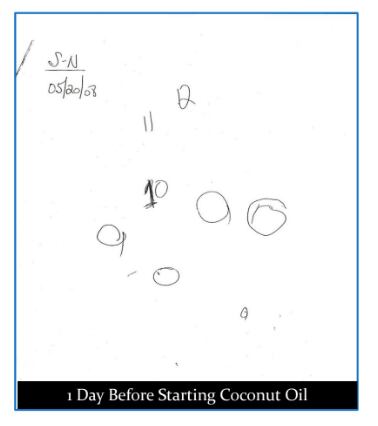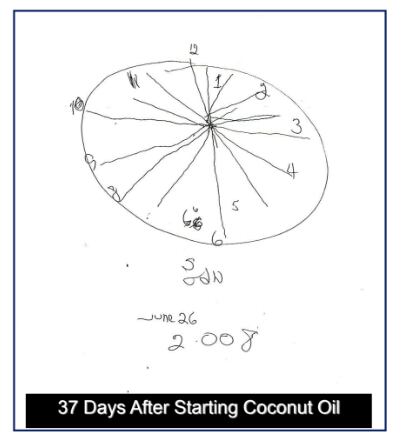Dr Mary Newport, MD, gave a presentation about the effects of coconut in helping ameliorate the cognitive decline caused by Alzheimer’s disease at the recent Expo West trade show. It was a difficult personal experience brought Dr May Newport, MD, to her discoveries. Her late husband started to develop signs of early onset Alzheimer’s disease a number of years when he was only 51.
Husband started to be affected
“He was an accountant, and he started making big payroll mistakes. And he started to not be able to remember if he had taken things to the bank or the post office,” Dr. Newport told NutraIngredients-USAcalories.
“At first his doctors thought he might be suffering from depression,” she said. “Then he started to not be able to read a map.”
Dr. Newport’s husband was formally diagnosed with Alzheimer’s disease eight years after having started to show symptoms. By that time he had been unable to read for more than a year because of visual disturbances. His gait had become unsteady, and he had started to not be able to recognize certain relatives.
That was in 2008, and some experimental clincal trials were starting to get underway for various drugs to treat the condition. Dr Newport’s husband was screened for one of the trials but was found to have too low a score on the Mini Mental Status Exam (MMSE). He scored a 12 out of 30, but required a 16 to qualify for the trial.
‘Diabetes of the brain’

Dr Newport had done much research on the condition in the meantime, and came to understand it as a type of ‘diabetes of the brain.’ One of the first aspects of the disease, before the plaques and tangles of neurons start to become apparent, is that the brain starts to lose its ability to use glucose.
“The brain uses up about 25% of the calories that we burn but only comprises about 2% of our body mass,” Dr Newport said. But in a fasting state, when little blood glucose is available, the body easily switches to use ketones, a product of fat breakdown, as fuel for the brain and other tissues, she said. Could ketones be used directly as an intervention?
Around this time she saw a press release for a medical food called Axona, which claimed to help patients with Alzheimer’s. Dr Newport found the patent application and saw that Axona’s main constituent was medium chain triglycerides, which readily break down into ketones in the body.
Dr Newport knew from her work as a neonatologist that MCTs are present in many foods, including breast milk. Adding MCTs to the formula given to preemie babies had been standard practice for some years, she said. The babies absorb it well and grew faster.

Dr Newport knew that coconut oil was rich in MCTs. Was it worth a try as an intervention with her husband?
Coconut oil sparks remarkable turnaround
On a whim, she gave him a large helping of coconut oil with his oatmeal for breakfast. Coconut oil consisted of about 60% MCTs, which is the richest source in nature (palm kernel oil is also quite high, too). When he went to retake the MMSE test for the clinical trial, his score had improved from 12 to 18 four hours after ingesting the oil.
She started giving him a little more than two tablespoons of coconut oil per day. After 37 days on the this intervention, her husband showed more animation in his face, his gait had improved and he showed a stunning improvement in the clock test, a standard cognitive measure in which the patient is asked to draw a clock face.
Dr Newport released her findings on her husband’s intervention in a paper published in 2015 in the journal Alzheimer’s & Dementia. She said the work she and others have done to get out the word about the efficacy of keytones in ameliorating the effects of Alzheimer’s disease (which includes the publication this year of a book by Dr Newport) is finally starting to make a difference.
“In 2017 there was the first ever session on ketones for Alzheimer’s at the meeting of the Alzheimer’s Association,” she said.


